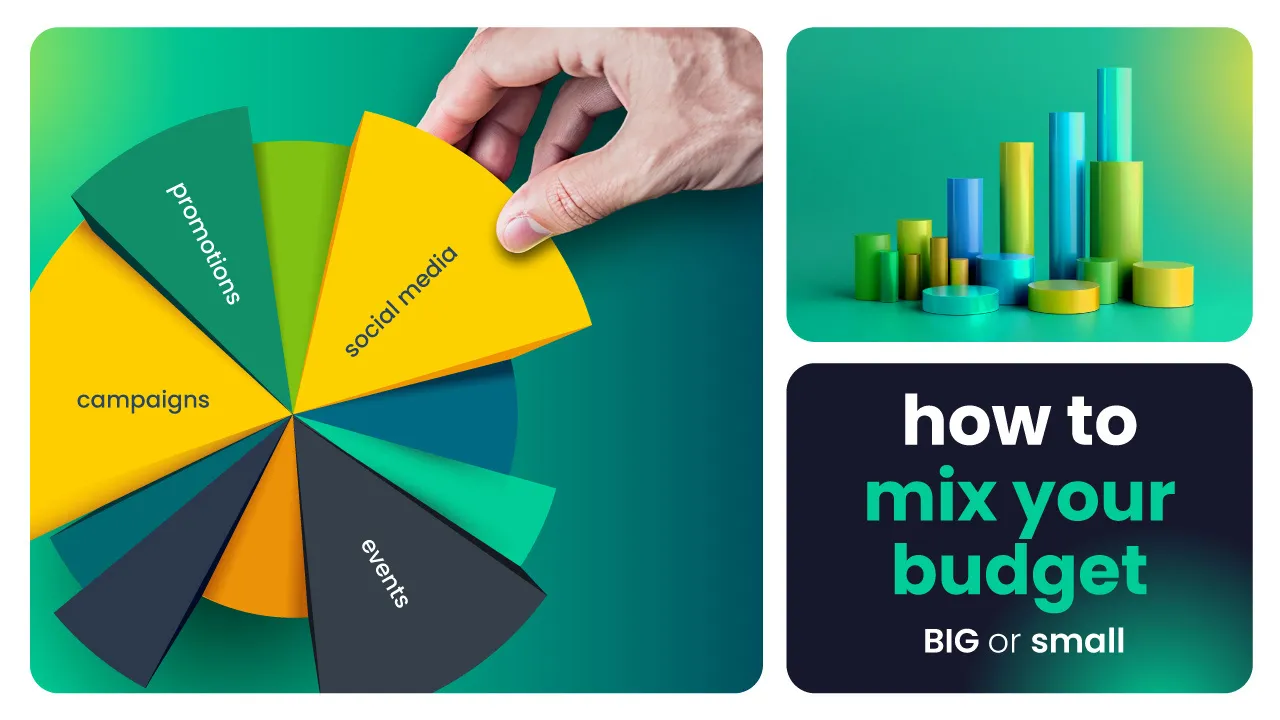How Important is the Marketing Budget for Brand Success? Very important! A large budget can make the difference between significant results and a massive failure. However, a good marketing strategy can cover the disadvantages of small budgets.
Obviously, the strategic message and audience knowledge, as well as a strong USP are essential, but equally important is choosing the right channels for your goals. Here are some common business scenarios.

Do you have a small budget? Make the most of it!
When you have a small budget that you cannot sustain in the long term, development may seem impossible. Well, nothing is impossible!
First, invest your budget in channels that bring you immediate return, channels focused on consumers with purchase intent. The most obvious option is Google Search Ads, Google Shopping Ads or any other PPC channels with the main conversion objective. Ideally, you should add remarketing for more visibility among those who, in addition to intent, have also shown interest.
In the case of small budgets, when it comes to awareness, social media is your friend. The main goal is to make sales, but a correct funnel that also includes awareness can take you far, so finding channels with low costs that can help you here is essential. However, do not allocate large budgets: try to create interactions with the help of relevant content, stay away from messages with a sales objective and create added value for your followers. Allocate daily budgets to promote in-page campaigns.
The budget is permissive, but you want fast results
Fast results are not always something we can achieve: most of the time, behind the results are a lot of work and a long-term investment. However, sometimes it is essential to enter the market strongly from the outset, especially when it comes to very competitive markets, where identifying a differentiator is difficult.
In this case, allocating a large budget in a short period of time, for a stronger impact, is essential. Make sure you allocate budget for channels with a wide spectrum and notoriety objective, such as OOH, events or digital campaigns that target consumers in the early stages of the purchase process, such as social media channels, GDN (Google Display Network) or influencer marketing. Do not forget to keep a substantial budget for remarketing campaigns as well - this way you consolidate your position. Later, after you have generated the desired interest, it is important to make sure that you are covered on all channels, both those with long timing, such as SEO, and those of immediate interest, such as digital campaigns with exact targeting.
In this situation, the message is very important: make sure that the strategic message communicated in the launch campaign is strong, memorable and impactful. Do not shy away from out-of-the-box communications - these are the ones that generate the strongest impact.
Strong differentiator, covering budget, permissive timeline
This is certainly the happiest situation, which allows the development and consolidation of the brand in an organic, sustained and quality manner.
Sudden growth is not always a good idea, especially for small brands that cannot support such development. Therefore, the most common marketing approach is one of consolidated development, based on a strong differentiator and respect for the brand promise. Budget allocation will be based on a user journey that respects all the steps (awareness, interaction, conversion), but also for SEO, which is essential for long-term organic success.
The budget percentages allocated differ from the ROI necessary to ensure brand continuity, organic growth, but also from the stage in which the brand is located. An analysis of these factors can shed light on this aspect.
Regardless of the type of brand you have, there is a marketing approach that is right for you to achieve your goals.
Digital agency specialists who understand the entire marketing ecosystem can help you find the right strategy for success.
Similar Articles
Want to chat more about this topic or any other topic?
Book a meeting with one of our digital monsters!